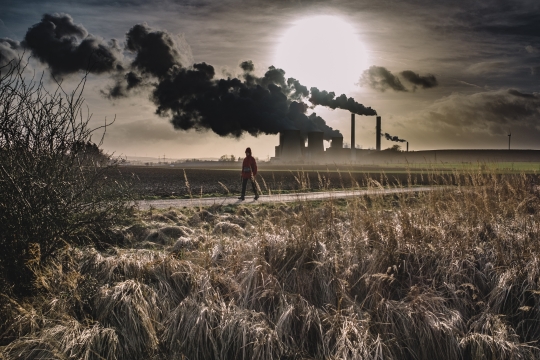
“Stop lying to women!”
The voices of hundreds of pro-choice advocates rung as I sat at my desk on Tuesday morning, the Supreme Court just outside the window. Each day brings another group of protesters, their voices permeate the glass, sometimes full of glee, sometimes broken.
On any given day protesters gather before the Supreme Court awaiting rulings. This day, we were expecting a ruling on National Institute of Family and Life Advocates (NIFLA) v. Becerra decision. The Court would decide if Crisis Pregnancy Centers (CPC’s), faith-based “clinics” that claim to provide full-service reproductive healthcare, could continue with their deceptive practices. These anti-choice facilities treat women in crisis with misleading medical reports, omitting critical information on these women’s full range of reproductive options, and counseling with the intent to dissuade from abortion. NIFLA brought this case against the state of California as a response to the 2015 passing of the Reproductive FACT Act, summarized by The Atlantic as “requiring licensed clinics that provide certain services—including ultrasounds, pregnancy tests, and advice on birth control—to post information about affordable abortion and contraception services offered by the state. Unlicensed facilities that provide these services have to disclose their lack of medical certification.” These requirements are basic safeguards designed to enable women to make informed decisions about their bodies and their health.
While I typically continue to work despite the outside distractions, I knew this ruling would be critical to the fate of women’s reproductive choice and the future of the pro-choice advocacy work that I hope to pursue as a career. I took off my flats, put on more sensible shoes and headed out to join the crowd.
I found hundreds of pro-choice advocates marching in a circle before the steps of the Supreme Court. Adjacent was a group of anti-choice proponents, significantly smaller in size. I promptly grabbed a sign and followed in line, quickly picking up the chants.
“Trust women!”
I chanted from my gut. I chanted for the women whose lives this decision would deeply affect. I chanted for the women who had lost their lives due to unsafe abortions pre-Roe v. Wade, when abortion was illegal in the United States.
My voice wavered as I began to lose my breath from chanting for so long. As I got quieter, the voices of those around me lifted to fill the void. This community was a powerful force.
As I watched someone run down the steps of the Court carrying a physical copy of the ruling in their hands, I braced for the decision. I was apprehensive but hopeful.
As a woman about my age from the anti-choice group called out “victory!” my face fell. The Court had ruled in favor of NIFLA, a deeply disappointing decision against the decades-long fight for choice.
As I began to reconcile that we had lost this fight, I looked towards the organizers of the pro-choice group for guidance. They had not stopped. Despite the news, our chanting had only gotten louder, our marching even more intentional.
This moment was pivotal to my understanding of the importance of resilience in social justice work. While this ruling was another crushing blow to women’s reproductive choice, the resiliency of this group was an inspiring act of resistance. To continue marching among these activists while the opposition celebrated just next to us was a moment that I will never forget.
It is my Jewish upbringing that drives my passion for social justice. Our Jewish history is a story of resiliency. Jews have been prosecuted for thousands of years, yet we continue to persist. This experience reminded me why I decided to spend my summer as a Machon Kaplan participant with the Religious Action Center of Reform Judaism. This fellowship has given me the unique opportunity to learn about social justice through a Jewish lens and apply it to a wide range of causes. Machon Kaplan has provided a source of community in which I feel unity, strength, and a profound sense of hope for our future.
While it might be an upward battle, the fight for the basic human rights of equality and access to adequate reproductive healthcare is not over.
Despite discouraging news out of Washington this summer, I implore those fighting for justice across this country to not back down. In our pursuit of an equal and compassionate world where everyone has a place, we all have an obligation to keep pushing for what is right. When your voice gives out and you are ready to give up, just keep marching.
Sarah Bernstein is a 2018 Machon Kaplan Participant, interning at the National Religious Partnership for the Environment. Sarah is a rising junior at the University of Delaware in Newark, DE. She is originally from Lexington, Massachusetts, and is a member of Temple Isaiah in Lexington.
Machon Kaplan is an internship program for undergraduate students interested in Judaism and social justice. Based in Washington, D.C., it provides students with a meaningful social justice internship, the opportunity to engage in study related to their internships and and making change more broadly, as well as an open reflective community with whom to share their experience. Students learn, through study and action, the interrelationship of Judaism and American ideals, as well as how change happens. Learn more.
Related Posts

Learning to Appreciate the Value of Nonpartisanship Through My Summer Internship


